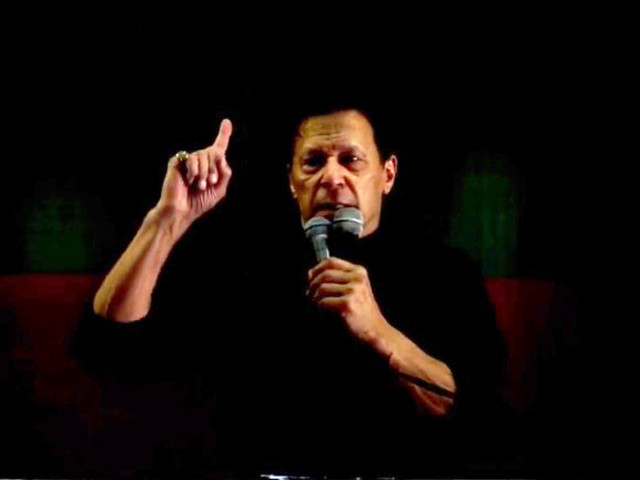
It was May 28, 1988 – 10 years before Pakistan became a nuclear power – and the capital’s air was heavy with unspoken knowledge. The director general of Inter-Services Public Relations (ISPR), Brigadier Siddique Salik, walked up to the prime minister, Muhammad Khan Junejo, to inform him that the president, General Ziaul Haq, would hold a “very important” news conference the next day.
The next day, Gen Zia appeared on national television and unceremoniously sacked Junejo and dissolved parliament under the Eight Amendment – the constitutional provision which allowed the president to unilaterally dissolve assemblies and send elected governments packing.
The decision shocked everyone as Gen Zia had hand-picked Junejo as the 10th prime minister of the country in 1985, believing that he would be a subservient premier.
However, Junejo had come out as a defiant and assertive premier, much to the chagrin of Gen Zia, especially after he authorised his foreign minister, Sahabzada Yaqub Khan, to sign the Geneva Accords – an agreement to settle matters related to Afghanistan – in April 1988.
Junejo’s relationship had further soured with Gen Zia when he had opened a parliamentary inquiry into the Ojhri Camp disaster – when missiles, rockets and projectiles rained down on twin cities after a military depot had mysteriously blown up – the same year. Eventually, differences between the sitting prime minister and president led to Junejo losing his government.
Zafarullah Khan Jamali was another premier who was hand-picked in 2002 yet he could not get along with the former military ruler Gen (retd) Pervez Musharraf and was forced to resign in 2004.
Read PTI would still be in power if ties with establishment weren't fragile: Fawad
Several prime ministers of the country, including the ones who served before and after Junejo, have met the same fate and have raised their voice against the interference of the security establishment in the political domain as they believe they should have had complete authority when given the responsibility to serve the nation as its premier.
However, hand-picked or otherwise, history shows that no premier could complete their constitutionally mandated term and no army chief could maintain good relations with civilian rulers for long.
From former three-time PM Nawaz Sharif to two-time ex-premier Benazir Bhutto and from the longest consecutive-term serving ex-PM Yousaf Raza Gillani to Jamali, everyone had a consensus that the military had a firm grip on every sphere of life, especially politics, even when they were not directly ruling the country.
From Sharif’s “I will not take dictation” to Gilani’s hit out at the military establishment that a “state within a state will not be acceptable” and from Sharif’s statement that the army has gone from a “state within a state” to a “state above the state”, the concept of a parallel government run by the military is not an alien phenomenon in Pakistan anymore.
Former premier Imran Khan is the latest to join the anti-establishment camp. In a public gathering on Thursday, Imran said that the establishment says it is neutral, but people would still be looking in its direction as they know where the “power” lies.
Imran said that the United States and the Soviet Union were the world's biggest powers, adding that when the Soviet economy tanked, it broke apart and even its strong army could not keep it together.
“Irrespective of the manner of their entry into office, often through the establishment, once they function as chief executive, which includes the power to appoint services chiefs, their notion of where power should lie, changes,” Senator Mushahid Hussain Sayed said, commenting on the matter.
The veteran politician said that the prime ministers know that those who get them in can get them out as well, as is often the case, sometimes through a coup or engineering a change via a ‘soft coup’, using political proxies or establishment’s allies within the system. “So, the establishment is quickly turned from being a likable military mentor to a despised ‘whipping boy’,” the senator said.
Sayed said, “The problem is that there are no ‘rules of the game’ amongst the political forces, hence, the proclivity to seek power by ‘hook or by crook’.” Ultimately, he said, this results in their political undoing, as “the laws of natural justice dictate that the manner of your exit from office cannot be much different from the manner of your entry”.
Political analyst, Mosharraf Zaidi, was of the view that democracy and civilian executive authority are organic and natural as far as the country’s domestic needs are concerned. But, the public policy expert said, the specific history, context, geopolitics and an awfully large neighbour impose a security-first regime on the country.
“The dichotomy is inescapable,” Zaidi said. “Elected civilians will always seek to assert control over the military and the military leadership will always resist losing the unaccountable power it now has in Pakistan.”



1719660634-1/BeFunky-collage-nicole-(1)1719660634-1-165x106.webp)

1732276540-0/kim-(10)1732276540-0-165x106.webp)



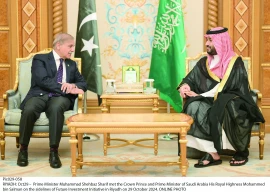
1724249382-0/Untitled-(640-x-480-px)1724249382-0-270x192.webp)

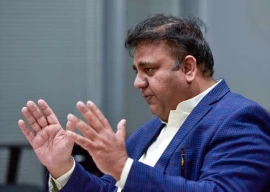
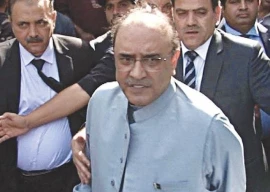
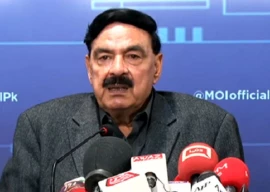






COMMENTS (5)
Comments are moderated and generally will be posted if they are on-topic and not abusive.
For more information, please see our Comments FAQ